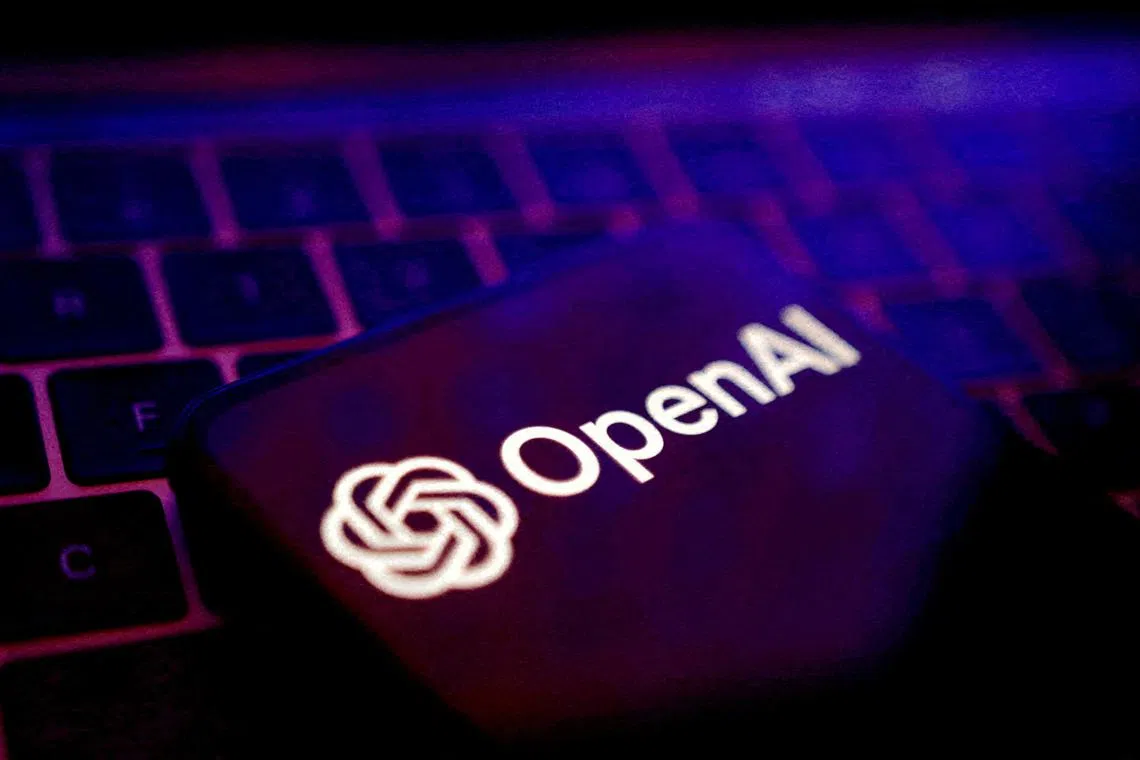Broadcom to help ChatGPT maker OpenAI make AI chip to take on Nvidia
Sign up now: Get ST's newsletters delivered to your inbox

OpenAI is set to produce its first chips in 2026, which would compete with accelerators from market leader Nvidia.
PHOTO: REUTERS
SEATTLE – Chip giant Broadcom is helping ChatGPT maker OpenAI design and produce an artificial intelligence (AI) accelerator from 2026, getting into a lucrative sphere dominated by Nvidia.
The two firms plan to ship the first chips in that line-up starting in 2026, a person familiar with the matter said. OpenAI will initially use the chip for its own purposes, the Financial Times reported earlier.
Broadcom chief executive officer Tan Hock Eng made veiled references to that partnership on Sept 4 when he said it had secured more than US$10 billion (S$12.9 billion) in orders from a new customer – which the person identified as OpenAI – for its custom accelerator business.
Accelerators are essential to the development of AI at big tech firms from Meta Platforms to Microsoft. Bloomberg News previously reported that OpenAI and Broadcom were working on an inference chip design, intended to run or operate AI services after they had been trained.
“Last quarter, one of these prospects released production orders to Broadcom,” Mr Tan said, without naming the customer.
Broadcom is among the chip designers benefiting from a post-ChatGPT boom in AI development, in which companies and start-ups from the US to China are spending billions to build data centres, train new models and attain breakthroughs.
On Sept 4, Mr Tan told investors the chipmaker’s outlook will improve “significantly” in fiscal 2026, helping allay concerns about slowing growth.
He previously said AI revenue for 2026 would show growth similar to the current year – a rate of 50 per cent to 60 per cent. Now, with a new customer that he noted has “immediate and pretty substantial demand”, the rate will accelerate in a way that will be “fairly material”.
Expectations were high heading into the earnings report. Broadcom shares more than doubled since hitting a low in April, adding about US$730 billion to the company’s market value and making it the third-best performer in the Nasdaq 100 Index.
Investors have been looking for signs that tech spending remains strong. Last week, Nvidia gave an underwhelming revenue forecast, sparking fears of a bubble in the AI industry.
Though Broadcom has not experienced Nvidia’s runaway sales growth, it is seen as a key AI beneficiary. Customers developing and running AI models rely on its custom-designed chips and networking equipment to handle the load. Its shares were up 32 per cent for 2025.
During the call, Mr Tan said he and the board have agreed that he will stay as Broadcom CEO until 2030 “at least”.
Other AI-focused chipmakers have stumbled in recent days. Shares of Marvell Technology, a close Broadcom competitor in the market for custom semiconductors, plunged 19 per cent on Aug 29 after its data centre revenue missed estimates.
Mr Tan has been upgrading the company’s networking equipment to better transfer information between the pricey graphics chips at the heart of AI data centres. As his latest comments suggest, Broadcom is also making progress finding customers who want custom-designed chips for AI tasks.
Mr Tan has used years of acquisitions to turn Broadcom into a sprawling software and hardware giant. Apart from the AI work, it makes connectivity components for Apple’s iPhones and sells virtualisation software for running networks. BLOOMBERG


